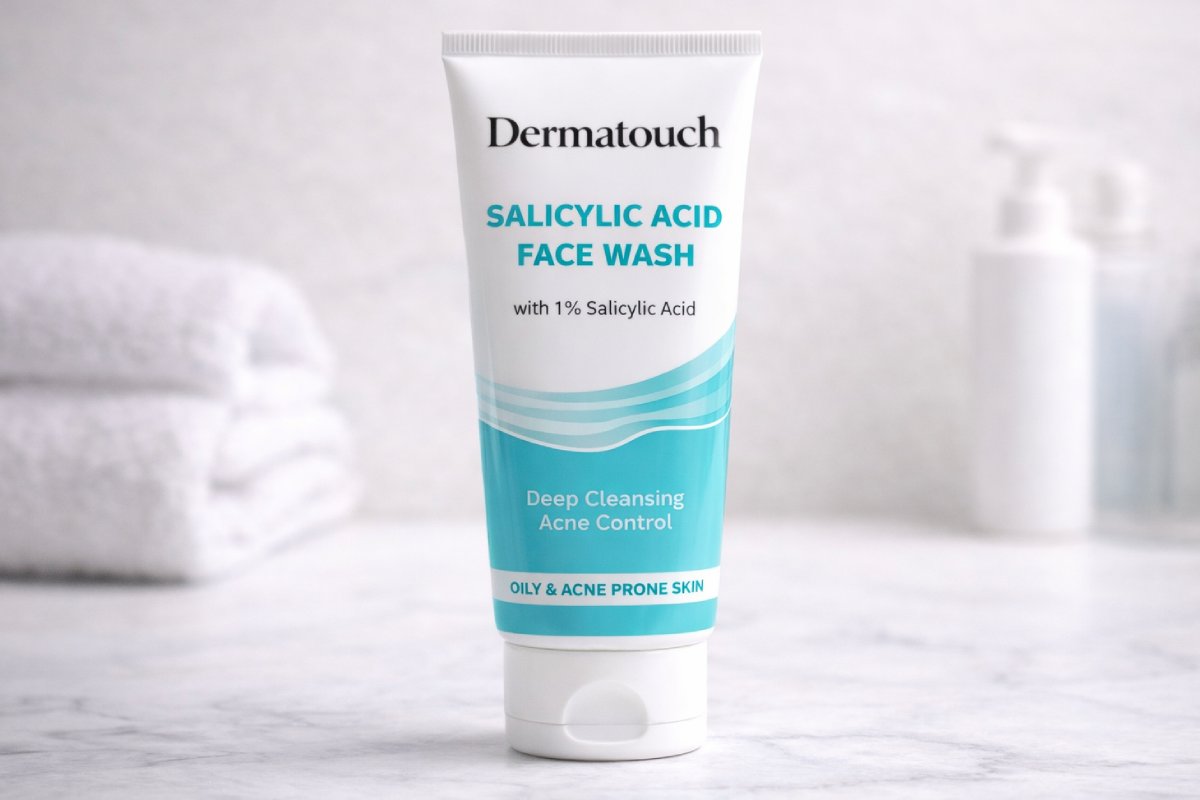Let’s be honest – when you’re lying there getting zapped with a laser beam, the thought probably crosses your mind: “Is this going to give me cancer?” You’re definitely not alone in wondering about this. It’s actually one of the most frequently asked questions people have before their first laser hair removal appointment.
Here’s the thing, though – after more than 25 years of people getting laser hair removal treatments (we’re talking millions of procedures), doctors have some pretty solid answers. The research is clear, and spoiler alert: you can breathe easy. The extensive research and expert endorsements provide a strong foundation for your confidence in the safety of laser hair removal.
We’re going to walk through exactly what the science says, why some people still worry, and what you really need to know to stay safe. By the time you finish reading this, you’ll have all the facts straight from medical experts.
The Real Deal: How Laser Hair Removal Actually Works
Think of laser hair removal like an exact heat gun that only targets one thing: the dark pigment in your hair. The laser shoots concentrated light straight into your hair follicles, heating them up just enough to damage them so they can’t grow hair anymore.
However, what sets it apart from scary radiation is that laser hair removal utilizes what scientists refer to as “non-ionizing” radiation. That’s a fancy way of saying it’s harmless and cannot mess with your DNA. It’s more like the energy that comes from your microwave or radio waves. Safe stuff that should put your mind at ease.
Most laser machines operate with light wavelengths ranging from 694 to 1064 nanometers. To put that in perspective, these lasers only go about 2-4 millimeters into your skin – that’s barely scratching the surface. They’re not penetrating deep enough to reach anything important, just the hair follicles sitting right under your skin.
Additionally, modern laser machines are equipped with advanced safety features. They’ve got cooling systems built right in, so your skin stays protected while the laser does its job. It’s like having a mini air conditioner running alongside the laser beam.
The Cancer Question: What 25+ Years of Research Shows
Okay, let’s cut to the chase. Can laser hair removal cause cancer? Medical researchers have been studying this question since the 1990s, and here’s what they’ve found: absolutely no evidence that it does. This lack of evidence should give you confidence and security in your decision to undergo laser hair removal.
We’re not talking about a few small studies here. Doctors have tracked people who’ve had laser treatments for decades, and there’s simply no increase in cancer rates among people who’ve had laser hair removal. Major medical organizations around the world, including dermatology societies in the US, Europe, and beyond, all endorse laser hair removal.
The confusion often arises from people confusing different types of radiation. Yes, some radiation can cause cancer, such as the UV rays from the sun or X-rays. But the light used in laser hair removal is entirely different. It doesn’t have nearly enough power to damage your cells or interfere with your DNA.
Now, a few doctors have noticed changes in unusual moles after laser treatments. But – and this is important – they weren’t saying the laser caused cancer. They were just being extra cautious about treating areas with weird-looking moles. Smart move, honestly.
The bottom line? After 25+ years and millions of treatments, if laser hair removal caused cancer, we’d know about it by now. The medical community keeps a close eye on these things, and the data just isn’t there.
Why Some Radiation Causes Cancer (And Why Lasers Don’t)
This is where things get interesting. Not all radiation is created equal, and understanding the difference explains why you don’t need to worry about laser hair removal.
The dangerous stuff – like X-rays and UV rays from the sun – is called “ionizing radiation.” This type packs enough punch to knock electrons right off atoms in your body. When that happens to your DNA, it can cause mutations that might eventually turn into cancer. That’s why you wear a lead vest during X-rays and why dermatologists are constantly nagging you about sunscreen.
Laser hair removal utilizes harmless “non-ionizing radiation.” This light doesn’t have enough energy to mess with your atoms or DNA. All it does is create heat in a particular spot (your hair follicles) without causing any cellular damage.
Think about it this way – you’re exposed to non-ionizing radiation all day long. Your Wi-Fi router, your cell phone, your microwave, and even your radio all use this same type of safe radiation. The laser hair removal machine is being used in a more focused way.
The wavelengths used in these treatments (694-1064 nanometers) are actually longer than visible light. Compare that to cancer-causing UV radiation, which uses much shorter wavelengths that can punch through skin layers and cause real damage.
It’s like the difference between a gentle warm breeze and a blowtorch: same basic concept, completely different results.
Staying Safe: What You Actually Need to Know
Although laser hair removal doesn’t cause cancer, there are still some innovative safety measures you should take. Think of it like wearing a seatbelt – probably not necessary, but why take chances?
First things first: go to someone who actually knows what they’re doing. Look for certified technicians using FDA-approved equipment. The FDA regulates these devices to ensure they meet safety and performance standards. This isn’t the time to hunt for bargains or try that sketchy place with amazing Groupon deals.
Before your appointment, avoid exposure to the sun for at least a month. Tanned or sunburned skin reacts differently to laser light, and not in a good way. You could end up with burns, scarring, or discolored pigmentation changes that take a long time to fade.
Inform your technician about any medications you are currently taking. Some drugs make your skin more sensitive to light – certain antibiotics, acne medications, even some herbal supplements. Your technician needs to know so they can adjust the settings or maybe suggest waiting until you’re off the medication.
During treatment, you’ll receive stylish protective goggles. Wear them. Laser light can damage your eyes, so it’s essential to take precautions. Most people say the treatment feels like getting snapped with a rubber band – annoying but totally manageable.
After your session, baby your skin for a few weeks. Use sunscreen religiously (SPF 30 minimum), avoid hot showers and saunas for a day or two, and skip the gym if the treated area might get sweaty and irritated. You may experience some redness, swelling, or a sunburn-like sensation, but these are usually mild and temporary.
When You Should Skip Laser Hair Removal
While most people can safely undergo laser hair removal, there are some situations where you should exercise caution.
If you’re pregnant or breastfeeding, most practitioners will ask you to wait. Not because there’s evidence it’s dangerous – there isn’t – but because pregnancy hormones can mess with your hair growth patterns anyway. Plus, why risk anything during such a necessary time?
Got any active skin infections, cuts, or inflammatory conditions in the area you want treated? Wait until those clear up completely. Laser treatment on irritated skin is asking for trouble.
If you’ve had skin cancer before, definitely chat with your dermatologist first. The laser treatment itself won’t cause cancer, but your doctor may want to examine any moles or suspicious spots in the treatment area before you begin.
Some medications can make your skin super sensitive to light. If you’re taking antibiotics, acne treatments, or certain other drugs, your technician may suggest adjusting your medication timing or waiting until you’ve completed the course.
Individuals with very dark skin need to be particularly cautious when selecting the correct type of laser. Older laser technology sometimes had difficulty distinguishing between dark skin and dark hair, which could lead to burns or pigmentation issues. The good news is that newer lasers are much better at handling all skin tones safely.
The Bottom Line
So, can laser hair removal cause cancer? The answer from decades of medical research is a solid no. The type of light energy used cannot damage your DNA or trigger the cellular changes that lead to cancer.
Millions of people have safely gotten laser hair removal treatments over the past 25+ years. Medical organizations worldwide endorse it as safe when done correctly. The most significant “risks” are minor side effects like temporary redness or, in rare cases, some pigmentation changes.
If you’re considering laser hair removal, focus on finding a qualified practitioner and following proper safety guidelines. The cancer risk? That’s one thing you can cross off your worry list.
FAQs
Q1: I have a family history of cancer – is laser hair removal still safe for me?
A1: Yes, family cancer history doesn’t change the safety of laser hair removal. The treatment uses non-ionizing light that can’t damage DNA, regardless of your genetic background. However, feel free to discuss this with your doctor if you’re concerned.
Q2: What about treating areas near my breasts – could that increase breast cancer risk?
A2: Absolutely not. The laser light only penetrates a few millimeters into skin and can’t reach breast tissue. There’s no mechanism by which laser hair removal could cause breast cancer or any internal cancer.
Q3: I’ve heard IPL is different from laser – does it have cancer risks?
A3: IPL (Intense Pulsed Light) uses the same safe, non-ionizing light as laser treatments. Both technologies have identical safety profiles and neither increases cancer risk after decades of use worldwide.
Q4: How many treatments can I safely have over my lifetime?
A4: There’s no limit on the number of safe laser hair removal treatments. People have been undergoing touch-up sessions for over 20 years without any long-term health issues being reported in medical studies.
Q5: Should I be worried about treating areas with moles?
A5: Most moles are fine to treat around, but it’s smart to have a dermatologist check any unusual-looking moles first. This isn’t because laser causes cancer, but because you want to make sure any moles are typical before treatment.
Q6: My friend said lasers can cause skin cancer – is that true?
A6: That’s a common myth with no scientific backing. Unlike UV radiation from sun exposure, laser hair removal uses controlled light that cannot cause the DNA damage associated with skin cancer development.
Don’t Miss These: Korean Skin Care Routine: Your Complete Guide to Achieving Glass Skin





